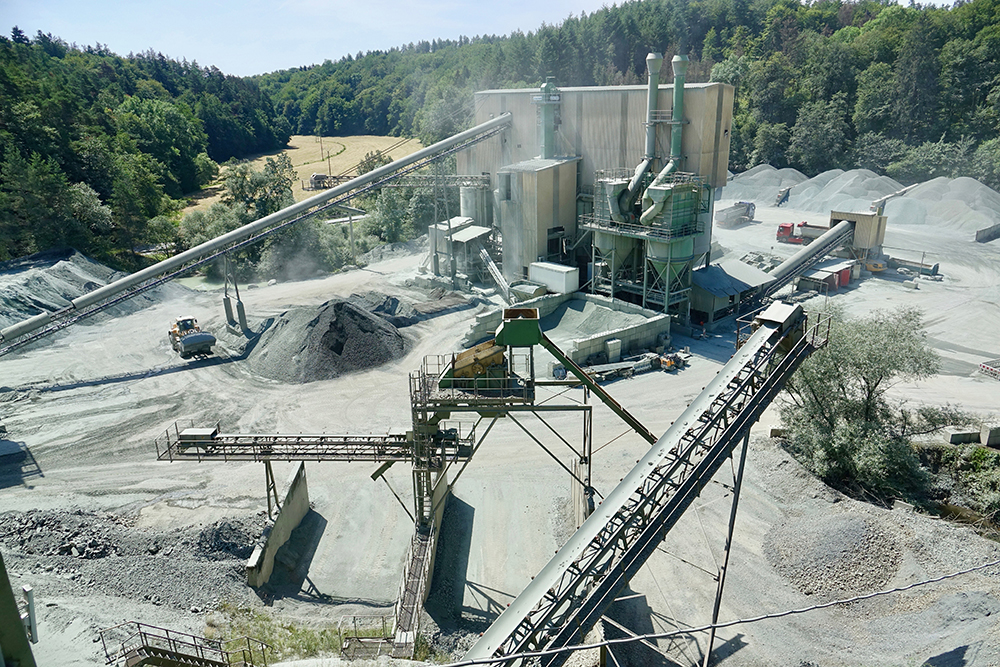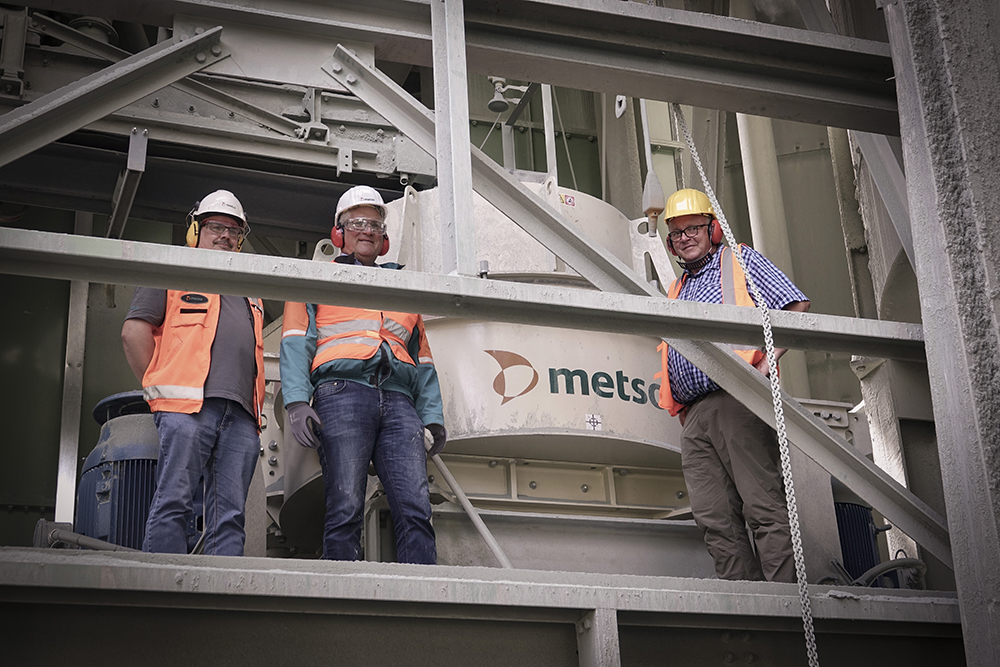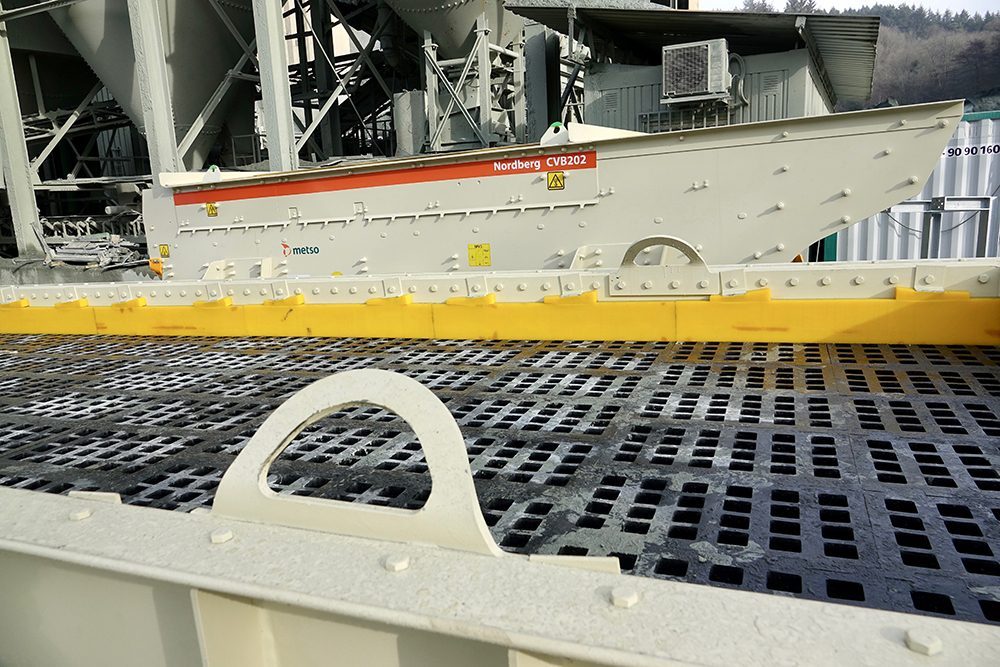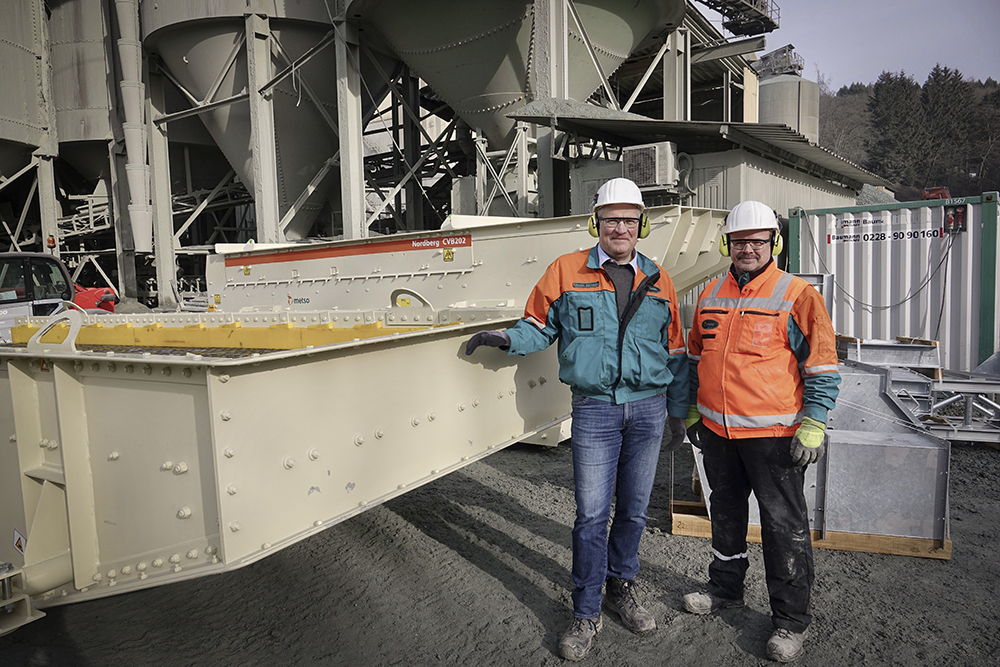
Wilhelm Jost GmbH & Co. KG’s (Wilhelm Jost) diabase quarry in Altenkirchen, Germany, wanted to increase the percentage of high-grade chippings that the quarry produced. The aim was to expand the capacity to produce the more popular and higher demand fractions while remaining flexible to meet future requirements. With this in mind, the business turned to Metso Germany, which recommended Metso’s SiteBooster plant optimisation solution. Although the existing plant needed significant modifications, the planning and installation phase of the Metso SiteBooster project went smoothly. The conversion completed within the prescribed time frame of eight weeks, including commissioning.
Wilhelm Jost can look back on a long history. Everything started with a paving operation, more than a century ago. Today, Werner and Bernd Jost operate a well-run road construction company that has been in the family for multiple generations. Their diabase quarry, which Wilhelm Jost acquired in the 1970s, is based in Altenkirchen, a town in Rhineland-Palatinate, 40km east of Bonn. They have also run an asphalt mixing plant a few kilometres away, in Braunfels-Philippstein, since the 1960s.

The Altenkirchen-based quarry (Diabaswerk Altenkirchen) primarily supplies three asphalt mixing plants (including its own) and three concrete mixing plants with the production of high-grade aggregates. Other materials are sold as a mixture to nearby clients, with some also serving their internal demand. Metso is a turnkey supplier for the quarry, supplying the screening solution as well as the crushing equipment (LC145, Nordberg HP3 cone crusher, Nordberg HP100 cone crusher Modular and Lokotrack LT1213S) and related wear and spare parts.
Renewing the existing plant and solving a production bottleneck
As early as 2016, Wilhelm Jost’s management was considering two options: construct an entirely new building or gradually renew the existing production plant at the Diabaswerk Altenkirchen over time. Large parts of the plant had been in operation since 1994 and were at the end of their economic life. Because of an impending loss of production and the limited space available, a gradual and partial renewal of the old plant was considered the best option. So, in 2018, together with Metso Germany, project planning got underway.
In addition to renewing machines, another goal was to eliminate a problematic bottleneck in Diabaswerk Altenkirchen’s high-grade chippings production to be able to expand the capacity of the high-demand 5-8, 8-11, 11-16 and 16-22mm fractions.
“We are convinced that in the future the market will require even greater quantities of high-quality aggregates,” explains managing director Bernd Jost.
In 2018, Metso won the contract for the detailed planning and realisation of the project to convert and modernise the quarry’s fine-chippings production. The contract included the planning, delivery and assembly of three screening machines, the supply of media and a vertical impact crusher (VSI).
The existing steel construction for the high-grade chippings plant had to remain untouched as much as possible. The project kicked off with the installation of two new bucket elevators, which were renewed by Wilhelm Jost on its initiative. Metso supplied a new chute and the steelwork reinforcements needed for the conversion.
With limited space available, the capacity expansion of the high-grade chippings plant could only be achieved with machines from the broad Metso portfolio, which corresponded exactly to the required dimensions. Also, the statics for all system components had to be recalculated and partially revised.
Replacing primary, secondary and tertiary screens

The first replacement machine was a single-deck screening plant, which mainly screens antifreeze material from the 0-150 mm feed material. The underflow from this screening stage goes to stock for sales or passes through a Metso HP100 secondary crusher into the high-grade chippings production. The oversize passes through the third and fourth crushing step into the Edelsplitt screening. The Metso ES203, a three-deck elliptical screen, was installed as the replacement machine for the processing of the material in the Edelsplitt screening.
The screen divides the material into three fractions (8, 22 and 32mm) over the 9m² of screen decks. Wire cloth is used in the lower deck, and the upper decks utilise Trellex LS RU rubber screen panels. The time spent on maintenance has decreased with the Trellex rubber screen panels because replacements are quick to do.
Like the other screening machines, the more than 10-tonne ES203 had to be lifted through the roof at a 25-metre height and positioned precisely. Wilhelm Jost chose the new ES screen because, at the given throughput, it manages the job with the smallest screening surface and thus works most effectively.
In the tertiary screening stage, a Metso CVB202 screen classifies the 8-11, 11-16 and 16-22mm chippings fractions. This two-deck screening machine has a screening surface similar to the ES203 and is also equipped with the Trellex LS RU rubber screen panels as well as with wire mesh on the last metre.
More powerful Barmac vertical impact crusher solves production bottleneck
To achieve the planned increase in high-grade chippings production capacity at Diabaswerk Altenkirchen, Wilhelm Jost needed to find a more powerful vertical impact crusher – in addition to the use of more productive screening machines. The choice fell to the Barmac B7150SE vertical shaft impact crusher, which can process up to 545 tonnes/hour, depending on settings and feed material.
The Barmac now takes over in the quaternary crushing stage and with its high performance eliminates the bottleneck that previously existed. Using the Metso HP3 cone crusher in the tertiary stage, the over 45mm material is first broken down to 0-32mm and then processed further in the new Barmac.
Another major challenge was the adaptation of the new material drains, chutes and screen trays to the existing chutes and conveyor belts. The engineering and assembly team also solved this task.

The more powerful machines are transferring much higher loads onto the current steel construction. The new Metso ES203 elliptical screening machine could, therefore, only be commissioned after the installation of structural reinforcements. The weight of this screening machine alone is already double that of its predecessor. Professional preparation and flawless static calculations allowed all of the machines to be installed correctly from the start.
Ensuring continued production during the project
During the renewal phase of the project and to keep production running smoothly, the company used another LT1213S mobile impact crusher and two mobile screening plants rented from Metso’s distributor Fischer-Jung, in addition to its machines.
Appraising the overall project, Bernd Jost said: “Apart from the adaptation of individual screen panels and settings of the material flows in the Barmac, which is completely normal, there were no unpleasant surprises.”








